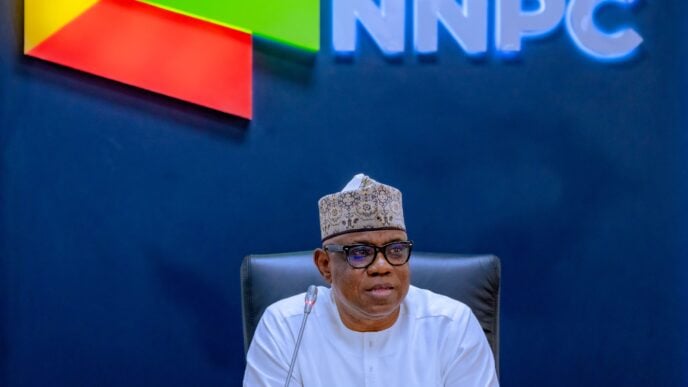Tompolo
The Economic and Financial Crimes Commission (EFCC) says Government Ekpemupolo, popularly known as Tompolo, has a case to answer over alleged naira abuse.
Tompolo is the chairperson of Tantita Security Services Nigeria Limited, an oil pipeline surveillance firm tasked with tackling crude oil theft in the Niger Delta region.
Over the weekend, a viral video of the ex-Niger Delta militant dancing as a man splashed N1,000 notes on him, surfaced on social media.
The video was shot in April during an event organised to commemorate Tompolo’s 54th birthday celebration.
Advertisement
SEE VIDEO:
EFCC see Tompolo and the Naira o🫢 pic.twitter.com/fL6AZkrCUQ
— Harrison A 🎯🎯🎯 (@harreceipts) May 11, 2025
Advertisement
After the video went viral on social media, many Nigerians challenged the anti-graft agency not to overlook the alleged naira abuse case due to Tompolo’s high-profile status.
In a post via X on Monday, the anti-graft agency published a screenshot of the viral video with the caption: “Nobody is above the law. Tompolo will have questions to answer!”
Nobody is above the law. Tompolo will have questions to answer!#EFCCNigeria pic.twitter.com/Ouk5avo6ef
Advertisement— EFCC Nigeria (@officialEFCC) May 12, 2025
Over the past few years, the EFCC has been cautioning Nigerians against abuse of naira notes. The agency has also arrested and prosecuted some celebrities over the “pandemic”.
In April 2024, Idris Okuneye, a popular crossdresser known as Bobrisky, was sentenced to six months imprisonment for abusing naira notes.
Advertisement
Recently, Iyabo Ojo, a Nollywood actress, was also invited for questioning by the anti-graft agency after videos showed wedding guests spraying naira and foreign currencies at her daughter’s wedding ceremony.
The anti-graft agency had also invited AY Makun, the comedian; Subomi and Wahab, the sons of Razaq Okoya, the billionaire industrialist; over alleged abuse of the naira.
Advertisement
Section 21(3) of the Central Bank of Nigeria (CBN) Act 2007 states that: “For the avoidance of doubt, spraying of, dancing or matching on the Naira or any note issued by the Bank during social occasions or otherwise howsoever shall constitute an abuse and defacing of the Naira or such note and shall be punishable under Sub-section (1) of this section.”
Advertisement









